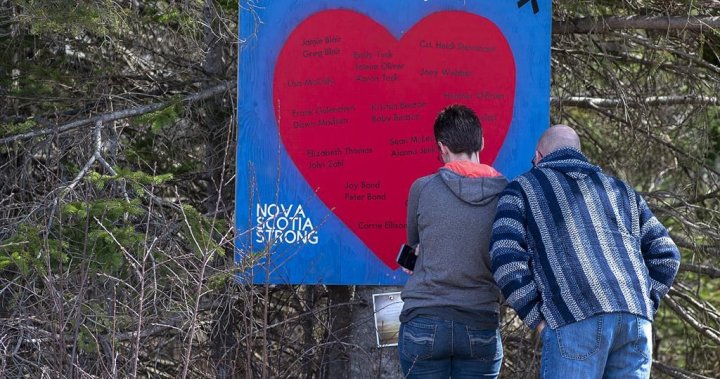Four years after the deadliest mass shooting in Canadian history, the community of Colchester County, where the tragedy took place, continues to struggle with accessing mental health resources. The mayor, Christine Blair, emphasized the need for support for victims of trauma, their relatives, and the community as a whole. The shooting, which took place on April 18-19, 2020, resulted in 22 deaths, including a pregnant woman and an RCMP officer. Fifteen of the victims were in Colchester County, leading to a lasting impact on the community’s mental health.
Blair highlighted the ongoing trauma experienced by the community, noting that a survivor of the shooting, Leon Joudrey, died by suicide in 2022 after not receiving the help he needed. She mentioned that the aftermath of the shooting has led to increased violence, anger, and intimate partner violence as people grapple with the effects of trauma. The Mass Casualty Commission, which investigated the killings and released a report, made recommendations to improve mental health access in the province, including increasing mainstream mental health services and implementing a national policy to support those affected by mass casualties.
In response to the recommendations, Blair emphasized the importance of continuous support for the community. Although the province initially provided counselling and grief support after the shooting, she highlighted the need for ongoing resources to help individuals cope with the trauma. She expressed a desire to see a counselling center established in a central location within the county to ensure everyone has access to the necessary support. Additionally, efforts are underway to create a permanent memorial for the lives lost during the tragedy.
Nova Scotia Premier Tim Houston stated the province’s commitment to making communities safer and stronger, emphasizing the implementation of the commission’s recommendations. The province has committed funding to enhance mental health, grief, and bereavement services in the affected counties. While there is acknowledgment that more work needs to be done, stakeholders are dedicated to ensuring progress in supporting the community’s mental health needs. Blair expressed hope that further support would be forthcoming to address the ongoing challenges faced by the community.
In conclusion, the community of Colchester County continues to grapple with the long-term effects of the 2020 mass shooting, with mental health resources remaining a challenge to access. The tragedy has left a lasting impact on the residents, leading to increased violence and trauma as individuals struggle to cope with the aftermath. Efforts are being made to implement the recommendations of the Mass Casualty Commission and provide continuous support for those affected. As the community works towards healing and resilience, stakeholders are committed to addressing the mental health needs of the community and ensuring ongoing support for those impacted by the tragedy.













